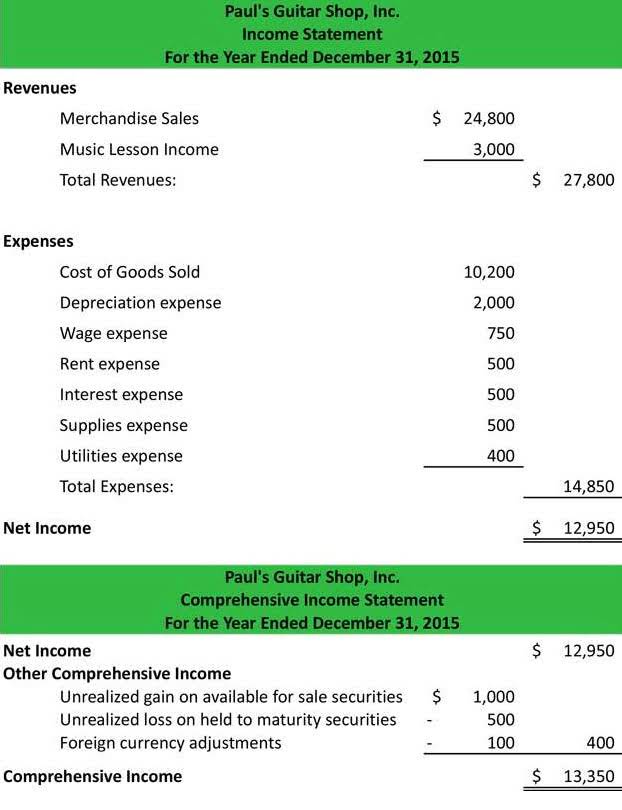8 Best Online Small Business Bookkeeping Services in 2025

This includes any debts or obligations your business has, such as loans, accounts payable, mortgages, and deferred taxes. Liability records are key in assessing short and long-term financial responsibilities and aid in the creation of balance sheets that accurately reflect the company’s financial state. A clear picture of liabilities ensures businesses can manage cash flow and plan strategically best record keeping for small business for future growth.
How should businesses record transactions?
Your income statement (aka a profit and loss statement) adds up everything you earned and everything you spent. Say you invoiced $2,500 for a branding project and spent $300 on tools and coworking. That leaves $2,200 in your pocket (net income).This report shows what you actually made—and it’s the one the CRA pays attention to at tax time.

Secure your records
Except in a few cases, the law does not require special kinds of records. If you’ve fallen behind on your books and struggling with overdue taxes, doola’s Catch-Up Bookkeeping helps you get up to speed with organized and accurate financial records. Xero’s cloud-based platform seamlessly integrates with hundreds of apps, making it a powerful choice for small and mid-sized businesses using online bookkeeping services.

Go Paperless With Cloud-Based Bookkeeping
Reconciliation is just a fancy word for double-checking your work. Start by matching your opening balance (the amount of money your business has at the beginning of an accounting period) Certified Public Accountant to your bank account. At the end of the accounting period, take the time to make adjustments to your entries.
The following are some of the types of records you should keep:

This method can work for freelancers or sole proprietors with no more than one or two business transactions a month. This method enters every transaction twice, as both a debit and a credit. Your business’s books are balanced when the debits equal (or cancel out) the credits.
Bookkeeping for small businesses: Five easy steps
- Common bookkeeping errors include transposing numbers, entering data in the wrong account, adding or leaving out digits or decimal places, or duplicating and omitting entries.
- Regulations advise retaining tax records for at least seven years after closing a business, covering periods of limitations for various tax issues that may surface post-closure.
- Invest in reliable accounting software to automate record-keeping and streamline financial management.
- Some external agencies, such as the Payment Card Industry Security Standards Council (PCI SSC), require businesses to keep documents for PCI compliance.
- We don’t guarantee that our suggestions will work best for each individual or business, so consider your unique needs when choosing products and services.
- At best, it’s time-consuming, and at worst, it’s frustrating and unreliable.
Investing involves risk, including the possible loss of principal. Before investing, consider your Accounts Receivable Outsourcing investment objectives and the fees and expenses charged. The cost-benefit analysis of hiring bookkeeping help isn’t just about hourly rates. “Also, there may be unauthorized transactions decreasing your funds and you only find out by examining your books and spending,” he warns. However, a fiscal year might be more suitable if your business follows an operating cycle that doesn’t align with the calendar year. For example, retail businesses might prefer a fiscal year ending January 31 to capture the complete holiday season in one reporting period.
Monthly Mileage Log Template
- Bookkeeping is essential to the vitality and long-term success of any small business.
- Bookkeeping accounting ensures that you have the right information to talk to your team and make them feel like they’re part of the company.
- Tracking accounts payable and accounts receivable, keeping tabs on cash flow, and being ready for tax time are all important for your small business.
- At the end of the accounting period, take the time to make adjustments to your entries.
- There are a few different options when it comes to getting rid of old paper records.
- With automation and cloud-based access, it simplifies financial tasks while keeping your records organized and tax-ready.
- Adopting best practices in record maintenance involves implementing both strategic processes and the right technology tailored to small business needs.
Single-entry is like keeping a personal checkbook – you record money coming in or going out in a single line. While this might work for very small businesses with simple transactions, double-entry bookkeeping provides a more complete and accurate picture. Most accounting software can generate these reports automatically, provided you’ve entered and categorized your transactions correctly. Of course, you need to keep accurate records and keep them up to date.
